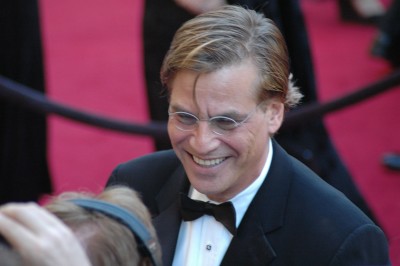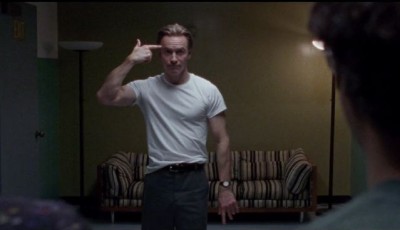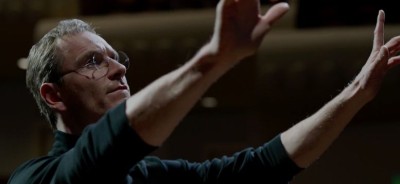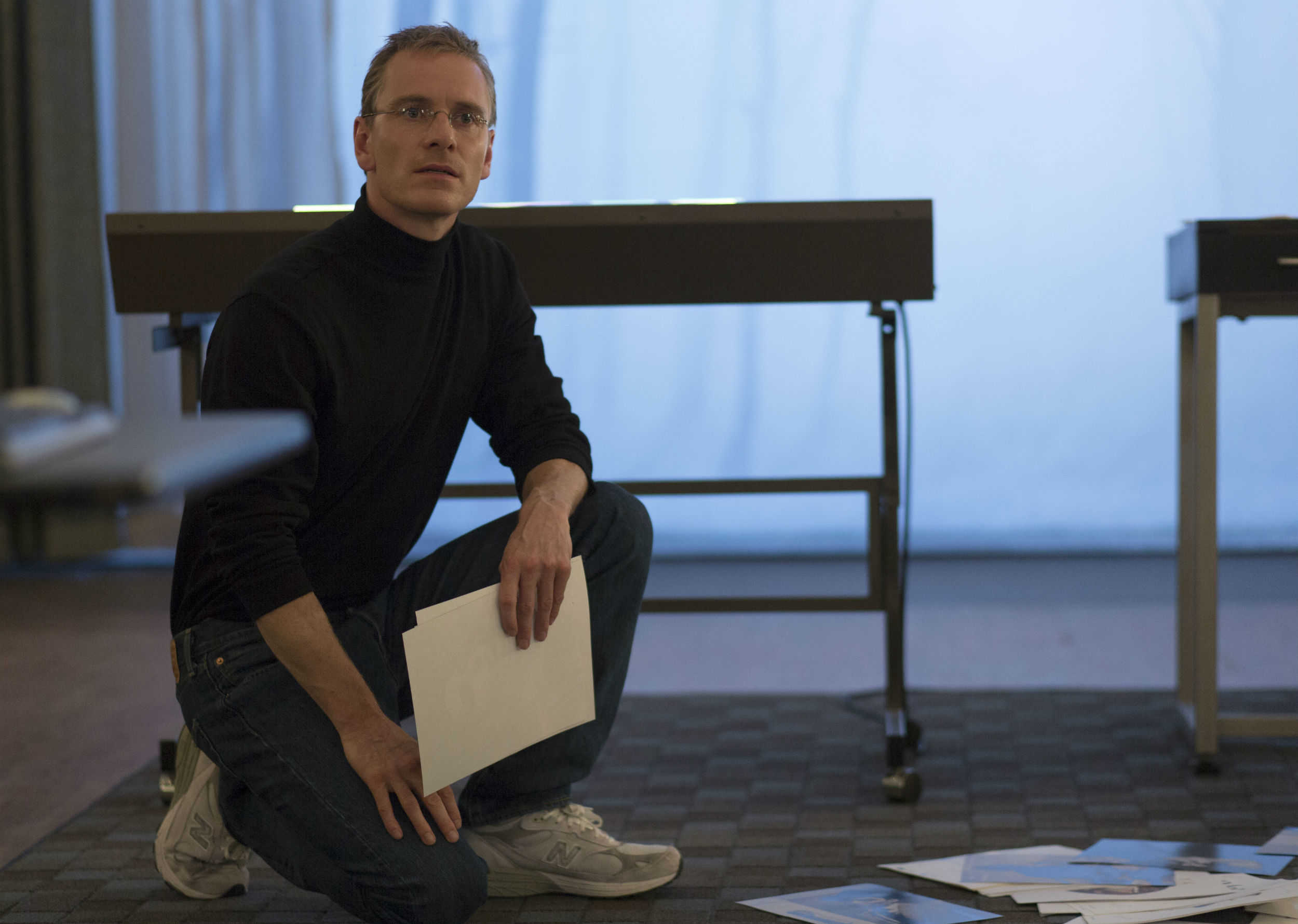It’s the Oscars this weekend, and if you’re an Apple fan, one question that lingers in the mind is what exactly happened to all the early awards buzz for Aaron Sorkin and Danny Boyle’s Steve Jobs biopic.
Initially hailed as one of 2015’s crowning cinematic achievements, the movie bombed at the box office and even registered on some “worst movies of the year” lists. Although it has picked up Oscar nominations for Best Actor and Supporting Actress (Michael Fassbender and Kate Winslet), the movie failed to get put forward for Best Picture, while Sorkin was also a notable absence in the Best Adapted Screenplay category.
Having now seen Steve Jobs three times (twice at the theater and once on Blu-ray), here are my thoughts on why the flick was ultimately a disappointment.
The direction is unremarkable
As the critical success of the colorful, vibrant Slumdog Millionaire shows, director Danny Boyle can make a movie that’s visually stunning — and capable of taking home the Oscar. While I was never a big Slumdog fan, I was bowled over the first time I saw the director’s earlier Trainspotting, which is about as kinetic a movie experience as you could hope for.
Especially today, a movie like Steve Jobs — consisting of people standing around talking to one another — needs to do something visually interesting. Steve Jobs (the person) understood from early in his career that you don’t sell computers to the masses without a bit of theater and spectacle to go with it. For whatever reason, Boyle seemed to miss this part.
Would originally planned director David Fincher have made it more of a visual treat? Sadly, we’ll never get to find out.

Photo: WEBN-TV/Flickr CC
It’s not Sorkin at his best
I love Aaron Sorkin. Steve Jobs spawned some of the most soaring speeches and withering putdowns in Silicon Valley history. These things together should have made Steve Jobs a dream project. Sadly, that isn’t the case.
Characters in Steve Jobs are one-dimensional, the dialogue has all the snap of a dry bath towel, and Sorkin’s brilliant ability to use dialogue to drive the action forward seems strangely absent.
I understand that a Steve Jobs movie has more to cover than one about Mark Zuckerberg, who was the basis for Sorkin’s superlative Social Network, but the writer’s other works have taken on international politics (The West Wing) and the entire news media (The Newsroom), which show he doesn’t shy away from big subjects.
With Steve Jobs, it all ends up feeling far too much like a clever structure — a biopic based around just three keynotes — which adds up to substantially less than the sum of its parts.
It bombed in theaters
The Academy Awards has a funny view of popularity. If a movie makes too much money and becomes a blockbuster, it’s seemingly guaranteed not to win the big prizes — which is exactly what happened to a movie like The Dark Knight in 2008 (with the exception of Heath Ledger’s unavoidable posthumous Supporting Actor win).
But, at the same time, if a movie bombs so badly at the box office that it takes on the instant word association of “flop” (remember Richard Linklater’s tremendous Me and Orson Welles? I thought not), the Academy never seems in a rush to reward it.
After all, the Oscars are a chance for industry types to slap themselves on the back for a job well done. What’s “well done” about a movie that lost shedloads of money for its backers?

Photo: Universal
It’s crazily inaccurate
Do I think that Academy voters didn’t vote for Steve Jobs because they’re sticklers for Apple history, and won’t hear of a movie that has Andy Hertzfeld — an engineer from the original Mac — showing up in a scene based around the launch of the iMac? Of course not.
Do I think some potential viewers stayed away because of the movie’s inaccuracy — and this, as noted above, affected the movie’s Oscar chances due to its poor box office? Quite possibly. Either way, the lack of accuracy certainly bothered me no end when I was watching Steve Jobs, and I think this is one of the flick’s biggest weaknesses.
I’ve got no issues with movies that take liberties with the truth. If Sorkin wanted Jobs to come up with the idea for the iPod five minutes before unveiling the iMac because his daughter seemed to care more about her Walkman than talking to her dad, I don’t mind. It’s neat storytelling and, as Jobs might have said, it “joins the dots.”
What I mind a whole lot more is the fact that about only the first third of this Steve Jobs movie felt even passably accurate. The rest of it feels like someone stopped reading Walter Isaacson’s biography on page 100, then decided they were going to finish the story themselves — with only the most cursory knowledge of what actually happened.
Why is NeXT suddenly rewritten as an attempt to force Jobs back into a CEO role at Apple? Why is John Sculley, who Jobs never spoke with again after 1985, showing up at both the NeXT keynote and iMac introduction to act as a surrogate father figure? Why is Joanna Hoffman positioned as the second-most-important person throughout Jobs’ life? Why would anyone work for a guy like movie Steve Jobs, who just yells at people without any of the positive qualities that made the real Jobs one of tech’s most inspirational CEOs?
It’s hard to watch Steve Jobs and not wonder all of these things.

Photo: Universal
Michael Fassbender doesn’t look like Steve Jobs
OK, so Michael Fassbender got nominated for Best Actor. But with Leonardo DiCaprio seemingly destined to win, it’s a safe bet that Fassbender’s not going home with a statue this year.
The Academy loves seeing an actor transform themselves into another person (preferably a famous one). Fassbender doesn’t once look like Steve Jobs in the movie, and there was never any pretense that he did. He sounds kind of like Jobs — with the same “gee whiz” boy inventor voice — but the physical resemblance to Apple’s late CEO simply isn’t there.
That’s a problem when Steve Jobs already doesn’t tell us anything about Jobs we didn’t already know. Especially when the two previous actors to play Steve (Noah Wyle in the brilliant Pirates of Silicon Valley and Ashton Kutcher in 2013’s Jobs) bore such a strong resemblance to him.
It’s a movie about tech
Agree with the premise or not, the whole “Oscars so white” controversy highlighted how a lot of Academy voters are old dudes. A movie about tech was always going to be a bit of a hard sell to that crowd.
What is frustrating with Steve Jobs is that Apple, whether you dismiss it as just insanely clever marketing or something deeper, sold the world on the fact that computers can change lives. There is something transcendent about the way Apple thinks of machines, as epitomized by Jobs’ belief that Apple sat (and still sits) at the crossroads of technology and the liberal arts.
Steve Jobs the movie never tries to make computers more than the controlled, hard, insular shells that stand in for Steve Jobs’ personality. If the audience doesn’t care about Jobs’ mission to sell computers, why care about the guy at all?
Steve Jobs is soooo 2011
It pains me to say it, but a Steve Jobs movie just feels played out here in 2016. Jobs died in late 2011, at which point it felt like the world went into mourning. If a Steve Jobs flick had been ready for release at that point, I don’t doubt it could have ridden a wave of interest in Apple’s late-CEO … possibly even into an Oscar win.
However, since Jobs died, we’ve had one other movie, multiple documentaries, several biographies, and an opera or two to satiate our interest in the Apple founder. Apple is enormously relevant today, as can be seen by the company’s current FBI battle over smartphone encryption. But a movie about Steve just doesn’t feel timely.
Other reasons?
Have you seen Steve Jobs? Am I being too harsh on it, or are there reasons I’ve left out as to why it didn’t become the massive critical and commercial success some were predicting?
Based on the other awards it’s received for its actors, it’s impossible to call it an out-and-out disaster, but — like many — I expected so much more from the movie. Leave your comments below.


